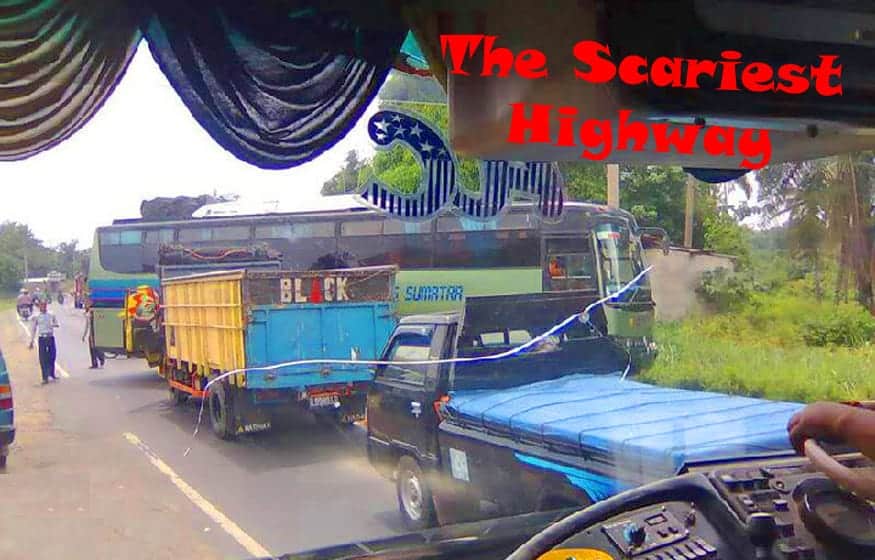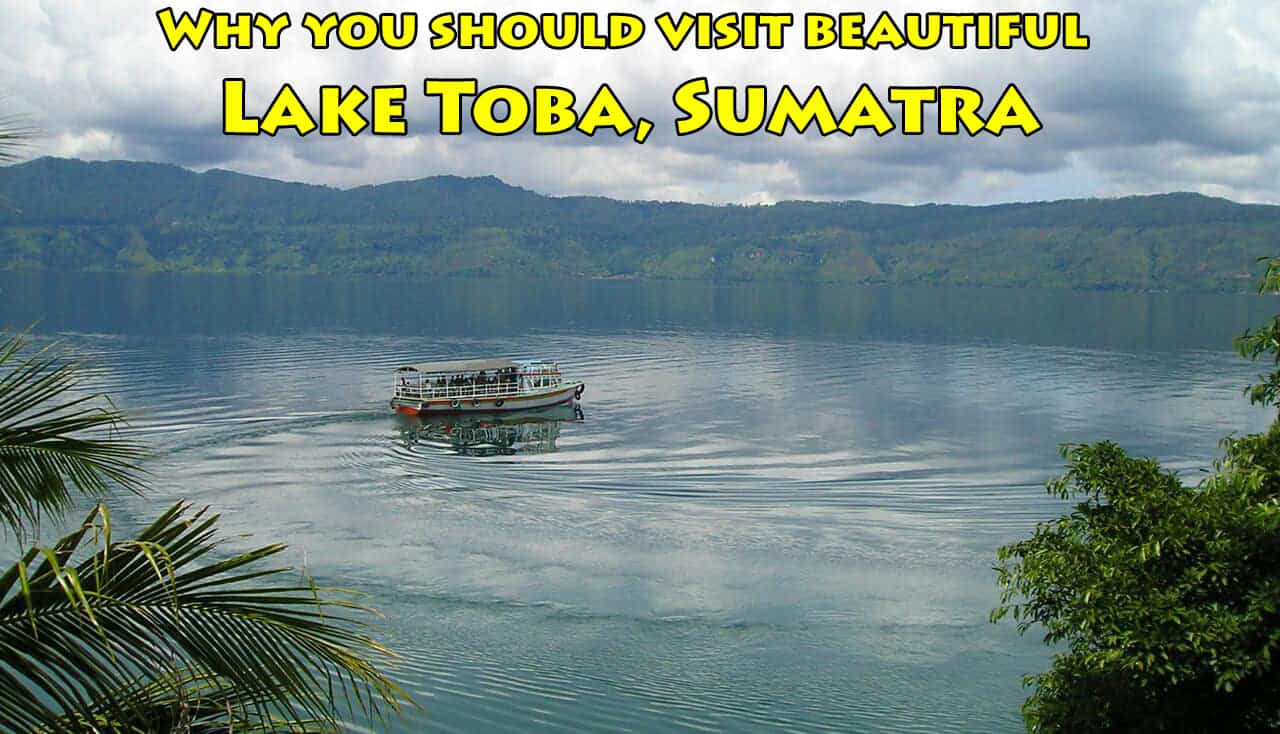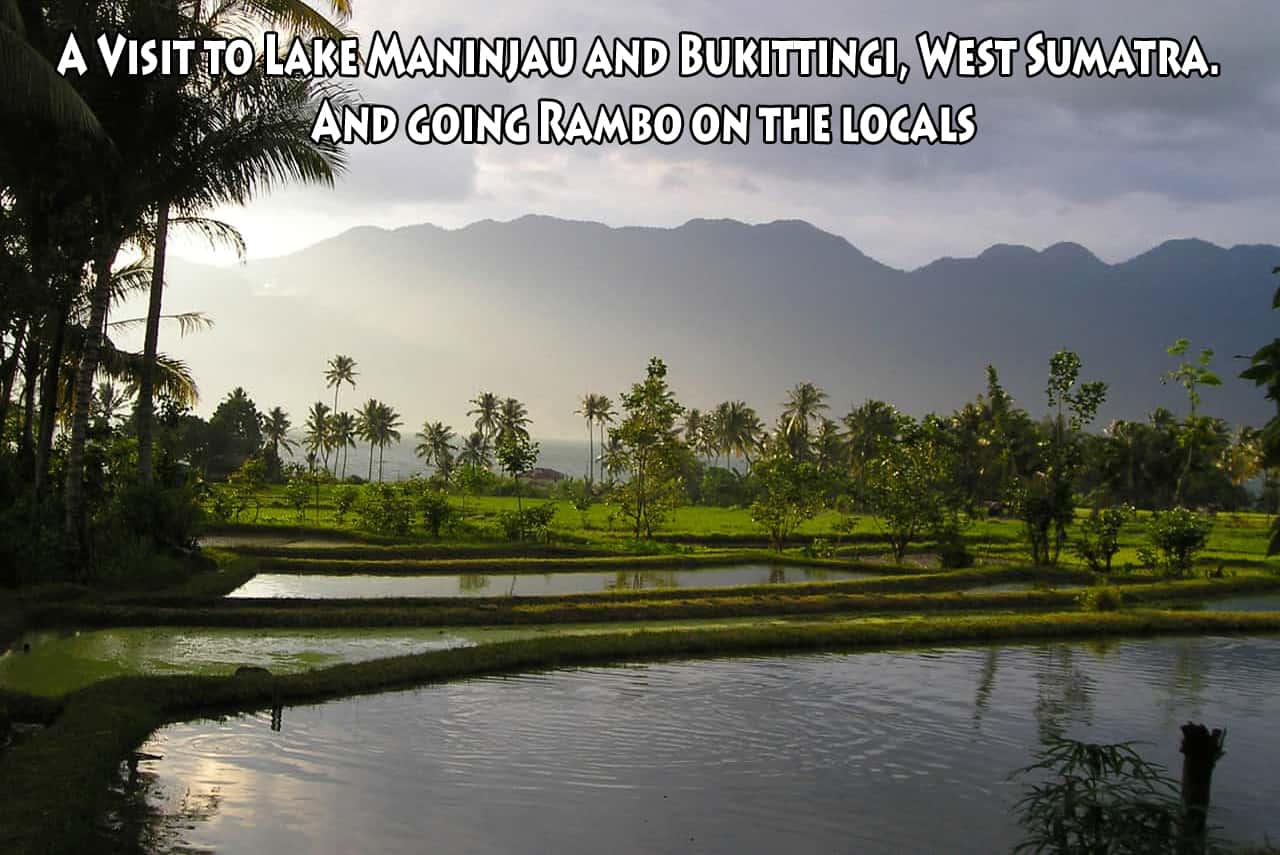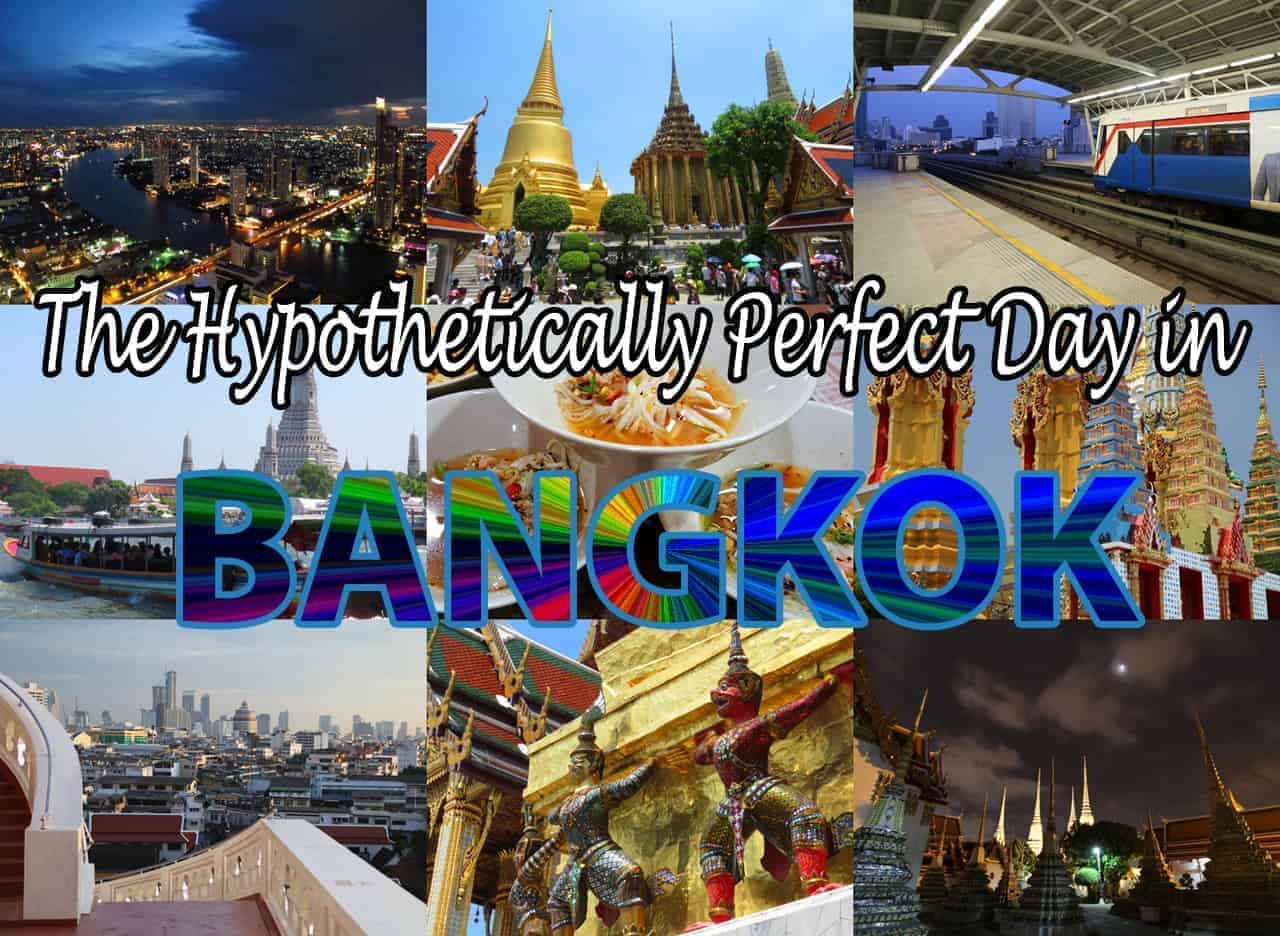 Medan to Lake Toba…and impressions of Sumatra
Medan to Lake Toba…and impressions of Sumatra
Medan, Sumatra (Indonesia)
“A natural wonderland of luxuriant forests, fast-flowing rivers, vast swamps, cool highland lakes and imposing volcanoes…”. I kept repeating this to myself, wondering how my initial impressions could be so far off the description given in the guidebook. Flying into Medan, Sumatra’s largest city and the entry point to the province of northern Sumatra, I was first struck by the washed out colors below. Unlike Malaysia, the hills and fields were a sickly, yellowish-green. Cracked and potholed roads, reddish-brown with mud, split the landscape, the roads bordered by one-story corrugated metal shacks and brick buildings, all with rusty roofs of the same dirty brown. Grey clouds and pools of coffee-coloured water in the fields testified to the onset of the rainy season and contributed to the rather dreary, uninspiring scene.
Medan is a transit point, nobody actually stay here longer than it takes to jump on a bus or plane. I was nevertheless surprised to see that I was the only Westerner getting on the Malaysia Airlines flight from Penang. I was also surprised by the reaction of the middle-aged lady occupying the seat next to me. She gave me a dirty look as I sat down, got up, and sat a few rows back. The other passengers didn’t look any friendlier; nobody smiled or even looked at the token white guy in their midst. Everyone was sour-faced, even the stewardesses (you can usually always count on a stewardess for a smile). Jeez, what the hell?
Medan was as unwelcoming. The terminal was dingy and dirty. A Visa booth stood next to the entrance. After purchasing the Indonesian government’s $25 US, 30-day tourist Visa, I passed to immigration where my passport was thoroughly examined, the inspector looking back and forth between the photo and guy standing in front of him. “Onward ticket?” The guidebooks don’t say anything about Visas or proof of onward transit. Lucky for me I had a return ticket to Malaysia. He gave me a disappointed, defeated wave. My readings had effusively vaunted the friendliness of Indonesians. I wasn’t seeing it.
The “Tourist Information Office” in Medan’s Polonia airport is a tiny, bare office with peeling white paint – no maps or glossy tourist pictures here – and an old wooden desk occupied by a chain-smoking 40ish-something man. He wasn’t friendly either. No, there were no longer any “tourist buses” operating to Lake Toba (indicated in some of my out-of-date guidebooks). I would have to take a bus from the Amplas Bus Station south of the city. No, he didn’t have any schedules. He did however have a taxi-driver friend to take me to the bus station; a big, cigarette-smoking man with unfriendly eyes.
The man wanted to take me somewhere other than Amplas, vaguely pointing at the side of the road while uttering “minibus Toba.” Medan was awful; ugly low-level cement and brick buildings in drab colours. Garbage was strewn everywhere. Exhaust from the traffic filled the air. Cars – ugly East-European looking cars – rubbed bumber to bumper. Motorcycles tried to manoeuvre between them. I looked out the window and wondered what made people go on living, that’s how dreary the scene looked. “No” I told the man, “Amplas.” I wasn’t going to get out on the side of the road in the middle of nowhere. He looked angry “Ok, I take you Lake Toba.” “No” I said, “Amplas!”. He grumbled aloud.
It was the most primitive bus station I have ever seen. Amplas is a huge, muddy lot full of congregating minibuses, along with a few larger buses run by ALS and ANS, the two major bus companies in Sumatra. Getting out of the taxi, I was besieged by touts “Where you go Mister?” Finding out that neither ALS or ANS had buses within the next several hours, I negotiated a minibus ride “Only three hours mister!” said the eager youth, counting a handful of rupiahs. Women and children, wearing ratty t-shirts and jeans and balancing baskets on their heads, sold dry cookies and bottles of water and smiled and giggled at the white tourist waiting in the minivan. A group of young boys came to stare and laugh. I could only smile back, wondering all the while if I was the only westerner to have ever made it though Amplas. I found myself sweating profusely. I held on tightly to my hand luggage. A woman came to look at me, smiling. It was then that I came to the realization that there was no malice in their curiosity. I seemed to be something of a minor celebrity here Maybe they thought I was Brad Pitt.
Amplas bus station & The Scariest highway in the world
Minibuses wait until they are full before leaving. It took 15 minutes before we left Amplas and got on the two-lane stretch of cracked asphalt that leads into the Sumatran interior. Huge trucks, belching exhaust and carrying lumber, were the monsters of the road, dwarfing the buses and minibuses that darted between them. Cars, motorcycles, and becaks (motorbikes with a sidecar) filled the gaps between the larger vehicles, while youths rode bicycles on the fringes of the road. Children played within meters of the asphalt beside the chickens, pigs, dogs, and geese that ran around in the exhaust-filled air. Off to the sides were dilapidated shacks, many fronting as open-air stores and garages, others seemingly set up only to sell untidy piles of durians (the famously bad-smelling fruit). It was 3rd world squalor, the headscarves of women the only thing differentiating it from anywhere else I have ever been.
I’ve never had as dangerous a trip in my life. Our driver would cut into the incoming lane and then seemingly fall asleep. At the last second he would swerve back into our lane, suddenly screeching to a stop alongside the road to pick up or drop off passengers. On more than one occasion we would pass a gigantic truck only to inexplicably cut right back in front of it to squeal to a stop, an action that would invariably lead to the truck swerving and passing by with a long blare of its horn. My eyes were wired to the road, my heart in my throat. I was initially reassured by the calmness of my fellow passengers. Many had their eyes closed, others looked down on the floor. I caught a few of them murmuring. It was then that I realized they were praying. That almost made me shit my pants. I don’t know about other people, but I get nervous when people start praying.
It took three hours before the traffic started to subside and the geography to change. I knew we were approaching Lake Toba when the corrugated metal shacks and frequent mosques started giving way to countryside and churches; quaint, Dutch-looking churches looking oddly out of place among green hills and leafy, flower-decorated shrubs. This small region of Sumatra is the home of the once cannibalistic, now protestant, Batak people.
It took another hour and a half, the minibus struggling up sharp inclines and hairpin bends, before levelling out and starting the descent into the crater. Lake Toba is what’s left of a huge volcano that erupted 100,000 years ago. Scientists say it was the largest eruption in the last 2 million years. The volcano subsequently collapsed and filled up with water. The statistics are remarkable; the lake is 100km by 30km and has an average depth of 450 meters (that’s deep!). Another eruption, about 75,000 years ago, created the island of Samosir, the island in the middle of the lake. It is 50km by 15km and approximates Singapore in size. That’s where most tourists go and where I was heading.
The last leg of the journey is the 40-minute ferry crossing from Parapat, the largest town on the mainland side of the crater, to Tuk-Tuk, the tourist town on Samosir. The wooden, double-decker boat chugged its way through the dark of the night, the air refreshing and cool. The lights of Tuk-Tuk reflected gently off the water as we came closer. Discernible were red Batak houses, their pointed roofs doting a hilly landscape full of vegetation. There were white-walled, 2-story bungalows set back among lush gardens and leafy trees. The island was quiet, the wind rustling the palm trees. The captain of the boat asked me which hotel I was going to. I told him. Minutes later we were headed towards a jetty, the captain’s assistant taking a flashlight onto the bow of the boat. “Romlan” he announced. That was the name of my hotel. I had finally arrived.
To be fair, I was travelling through Sumatra in the middle of Ramadan – this could explain the indifference bordering on unfriendliness that I encountered in Muslim parts of Indonesia. Most guide books suggest that Ramadan is not the best time to travel in any Muslim country.
Practical Information
Consider taking a private transfer from Medan Airport to Lake Toba. It will save you a lot of grief.
We stayed at Romlan in Lake Toba. Excellent. Carolina’s is also very good.
Related: Why you should visit beautiful Lake Toba
Related: A Visit to Lake Maninjau and Bukittingi (West Sumatra)
Related: The Hypothetically Perfect Day in Bangkok
Ps. If you enjoy our blog, please consider using our links to book your flights, hotels, tours, and car rentals. Have a look at our Travel Resources page.





Just quickly as I see some Sumatrans are landing on this blog. We absolutely loved Sumatra & have rarely been met with greater kindness & generosity anywhere in our extensive “shoestring” travels on this planet. One of my big regrets in life is never having gone back to explore more. Thank you for your wonderful guest friendliness Sumatra.
I so enjoyed your description of Lake Toba! It bought back memories of when I went in 1981. It was a really hairy ride in a large bus to Pratap, I stayed in one of those A shaped Batak houses for $1 a night & just swam in the lake every day for 2 weeks with a lovely family. Also hired a motorbike for a day or two! Many Italians used to go there! I also remember Medan not being very pleasant or friendly! Great read! Thanks. ✈️🌏🐨🦘
Thank you for sharing those very nice memories! $1/night. Wow!! For me it´s also been a long time. It`s still very cheap and I wonder how much it’s changed…
Thank you for your comment 🙂
Beautifully accurate description of Medan in the monsoon season just be glad you flew in & didn’t, as my wife, myself & two young sons did, make the mistake of taking one of the horrendous high speed waterborne torture chambers over from Penang!
In Medans defence. An old friend of mine ran a bar & restaurant there for many years he waxes ecstatic over the place. I have to say his description sounds wildly different than the Medan we experienced during our five day stay next to the Masjid Raya Al Mashun before moving on to the gorgeous interior of Sumatra which we ended up exploring deeply for a couple of months before taking a “first class” ticket on a Pelni ferry from Padang to Surabaya another waterborne nightmare but none the less a fine adventure. Nothing boring about a experiencing a tropical storm at sea but the military take over of the ship & boarding swarms of East Timoans fleeing Jakarta really did put the cream on the cake. First & last time I was ever jabbed in the belly with an assault rifle for the crime of trying to get back to my cabin & family. 🙂
Well written, I feel sorry for what happened with you.
Indonesia used to be a nice country, if you come here 15 years ago it will be totally different. The last 15 years we change a lot, we used to have a strong, powerful government that can control the people. But people in the west think that the government too powerful, so this is the result we have now with democratic chaos.
Whether you travel during Ramadhan or not won’t make any difference, because it is more related to the changing attitude of the people.
Finally I hope you still have a few good things to remember from your journey in North Sumatra
Thanks for the comment Greg. We’d like to spend more time in the future visiting more of Indonesia, lots of beauty. I’d even go back to North Sumatra with Spanky – Lake Toba was gorgeous. Just wish there was an easier, more civilized way to get there from Medan. Any suggestions appreciated…
Sorry to hear about changing attitudes though. We’re presently in Thailand and expats here saying the same thing about the Thais. I wonder if this is just the way of the world.
Frank (bbqboy)